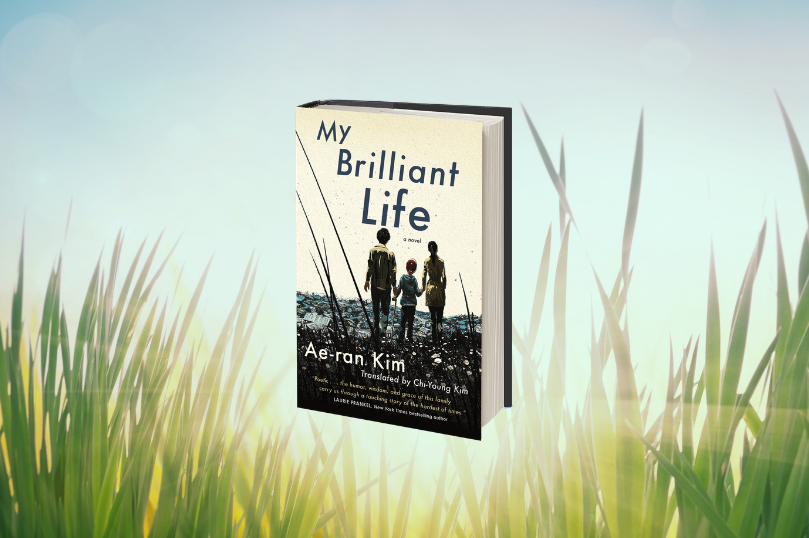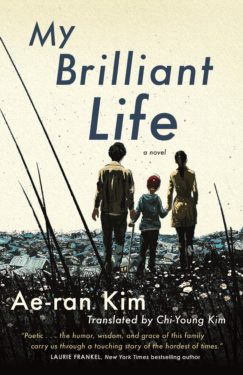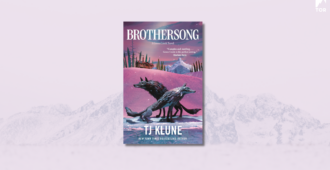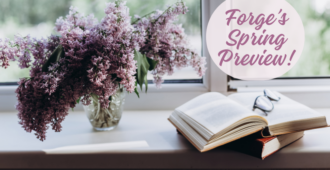Ae-ran Kim’s My Brilliant Life, translated by Chi-Young Kim, explores family bonds and out-of-the-ordinary friendships, interweaving the past and present of a tight-knit family, finding joy and happiness in even the most difficult times.
Areum lives life to its fullest, lives vicariously through the stories of his parents, conversations with Little Grandpa Jang—his sixty-year-old neighbor and best friend—and through the books he reads to visit the places he would otherwise never see.
For several months, Areum has been working on a manuscript, piecing together his parents’ often embellished stories about his family and childhood. He hopes to present it on his birthday, as a final gift to his mom and dad; their own falling-in-love story.
Through it all, Areum and his family will have you laughing and crying, for all the right reasons.
My Brilliant Life will be available on January 26, 2021. Please enjoy the following excerpt of the second chapter!
If you want to start from the beginning of the book, read the first chapter over on NetGalley. If you want to download a digital preview to read on your e-reader of choice, check out our free digital preview!
Two
I turned seventeen this year. People say it’s a miracle that I’ve lived this long. I think so, too; not very many people in my situation have lived past their seventeenth birthdays. But I believe that the larger miracle exists in the ordinary, in the living of an ordinary life and dying at an ordinary age. To me the miracles are my parents, my aunts and uncles, our next-door neighbors, the middle of summer and the middle of winter. I’m no miracle.
A few years ago, a neighbor asked my parents, “So you don’t know what caused it? There’s no treatment?”
“Right,” Dad said.
“Then that’s not a disease.”
“I’m sorry?”
“That’s a message.” She was holding a worn bible and a rosary.
“Ma’am,” Dad said, bristling. “He’s not a message. He’s Areum. His name is Han Areum.”
In the moment I was embarrassed about my gentle, round name that is at odds with my appearance, but I was also proud—my dad was all grown up. As a teenager, he had just looked down like he had done something wrong when people said things like that, but now he tried to protect us from insensitive people. Still, he must have been upset. That night, he stumbled home drunk, holding a bag of cheap dumplings. It wasn’t the first time someone said something so rude to us, so I don’t know why it affected him like that. He came into my room and laid his head on my frail legs.
“Areum, what kind of music do you like?” he asked, grinning.
“Why do you ask?”
“Just curious. I want to know what my son likes to listen to.”
With my dim eyes I looked over my glasses at my father, my incredibly young dad, and smiled. I wanted to make him feel better. “Anything a pretty girl sings,” I said lightly.
“Me tooooo!” he hollered, and sprang up. “Lee Hyori’s the bomb!”
I raised both arms high and yelled “Park Ji-yoon is the bomb!” as loud as I could, though my voice wasn’t as powerful as I wanted it to be.
Dad jumped up and down. “Uhm Junghwa’s the bomb!”
“Sung Yu Ri’s the bomb!”
“BoA’s the bomb!” He suddenly grew quiet. “You know what, Areum? The older you get, the more you start liking sad songs. And the saddest song in the world is what you listen to when you’re drunk. So when you’re grown up, make sure you’re drunk when you listen to ballads, okay?”
“Okay, Dad.” I grinned gummily, revealing my few remaining teeth. “Dad?”
“Huh?”
“Are you sad right now?”
“Yeah.”
“Because of me?”
“Yeah.”
“What can I do to make you feel better?”
He stared at me, thinking something over. “I don’t know what you can do to make me feel better, but I know what you shouldn’t do.”
“And what’s that?”
“You shouldn’t feel guilty.”
“How come?”
“Because it’s a privilege for someone to be sad for someone else.”
I was quiet.
“Me, I’m just happy that you’re the reason I’m sad.”
I didn’t say anything.
“So you—you—”
“Yeah, Dad?”
“When you grow up, I hope you’ll be sad for someone. And when you’re sad, you should cry. Like a little kid.”
“Dad?”
“Yeah?”
“I’m already a kid.”
“Right. I know.”
***
I usually read books when I was alone. At first I followed along with the school curriculum but soon ended up reading other titles out of boredom. Books were everything to me—a grandmother who told me stories all night long, a teacher who imparted all the knowledge in the world, a friend who shared their secrets and problems. Philosophy was difficult and I still don’t understand many parts of those books, but I thought of them as a long, elegant poem. I figured the parts that didn’t make sense to me would someday walk toward me and say hi, the way important lessons usually sink in later in life. My heart raced without having to physically run.
I liked everything composed of paper and print no matter the genre or thickness, from illustrated guides to insect, plant, and marine life to collections of poetry that stomped all over my heart to social science tomes that slapped my mind awake. Among them were random books for beginners: Go’s First Steps, What is Golf, Beginning Japanese, Basics of Electrical Engineering, Classical Music for Beginners, Easy Feminism. I don’t know why I chose to read them. I studied electrical engineering but I couldn’t change a single light bulb without becoming slick with sweat; I memorized hiragana but never set foot in Japan. I didn’t read for the love of knowledge but rather with the anxiety of someone who would be the sole survivor when the world ended. If someone were to ask me how I could read all of that at my young age, I would reply that a person could do a surprising number of things if they were alone for a long time. Not because of their determination, mind you, but because they have to fill the time somehow. I liked fiction best, of course. Everything from the oldest story of humankind to a brand-new debut novel by a young author, from the story with the most mass appeal to experimental works penned by an author who wanted to flip the bird at the older writers in the cannon. Books I didn’t have a chance to read and maybe never get to read kept being published. I’d stealthily grown old while I hung out with all the writers in the world. Or maybe I didn’t grow old while I hung out with the books; maybe I was drawn to them because I was old. My skin had cratered long ago and my hair had been thinning for many years now. Despite my elderly appearance, I didn’t have the corresponding experience or wisdom. My wrinkles didn’t have layers or volume; my aging was a hollow process. I knew nothing about the lives of older people or the thoughts and problems of the youth. Thankfully, books contained a lot of that, even if they didn’t encompass everything.
Sometimes Mom asked, “Areum, what are you reading?”
“Just essays, Mom. This writer went suddenly blind at age seven when his mother died. But then eight years later, he could just see one day. Like a miracle.”
“Is it a novel?”
“No, it’s a memoir. Listen to this. So when he could see, the first thing he did was rush to the bookstore because he was afraid he might lose his sight again. The first book he grabbed was The Idiot.”
“Why? Is that a famous book?”
“To him it was, because his father always called him idiot when he was little. Isn’t that funny?”
Mom smiled bashfully. “I have a potty mouth, too.”
Another day Dad asked, “Areum, what are you reading?”
“A novel, Dad.” My breath whistled through my missing teeth. “It’s about a boy and his family who are moving to America, but before they get there they are stranded by a storm.”
“Yeah?”
“So this boy is left in the middle of the Pacific with a tiger. At a certain point he says that he was more afraid of despair than the tiger, but when the tiger disappears, he breaks down in tears.”
“What? That doesn’t even make any sense.”
“No, I swear it does. If you read it you understand why that is.”
“Yeah?”
“Yeah, really,” I said, my voice trembling. “So, Dad?”
“Yeah?”
“When you feel alone, when the world feels like the vast Pacific?”
“Yeah?”
“I’ll be your tiger.”
Dad didn’t say anything for a while, then stroked my head. “A toothless tiger, I guess?”
On yet another day, my sixty-year-old neighbor, Little Grandpa Jang, asked, “What’s that?”
“It’s a really awful book that adults shouldn’t read.”
“I’ve had a pretty awful life. More awful than you’ll ever understand. And you better believe that I’ve done some unimaginably horrible things. So hand it over.” Little Grandpa Jang flipped through the book, which I’d brought over as a joke, and was immediately pulled into the racy, provocative stories. This was an old book that had been banned in China. Little Grandpa Jang insisted on borrowing it from me.
A few days later, I was walking by Little Grandpa Jang’s house when I heard voices from the front yard. Little Grandpa Jang’s father, ninety-year-old Big Grandpa Jang, was scolding his son. I couldn’t tell exactly what it was about but I clearly heard Big Grandpa Jang boom, “When will you grow up!”
Something flew over the wall and landed by my feet. It was the book.
As I read other writers’ words I naturally wanted to write something myself. I’d always scribbled in my diary and composed essays and movie reviews to post online. A few of them were so popular that dozens of comments were tacked on below, and some were even designated as recommended reads. Only recently did I decide to write a real story. I made that decision a few months ago, when I came home from the ICU. In the hospital I had been hooked up to a respirator, drifting in and out of consciousness. It seemed that my parents had been told to prepare themselves for the worst. I’d had a few health crises before, but this time was very serious. My grandmother, my uncles, and some other relatives came to visit me in the ICU. I’m sure everyone thought this was the end. They took turns sitting by my bed, talking among themselves. I sank into a deep, faraway sleep. Sometimes, even though my eyes were closed, I was clear-headed. Nobody realized I was conscious when that happened, so people said what they meant honestly.
“You shouldn’t have had an abortion that time,” my grandmother told my mom.
“Mom!” Mom hissed. “Don’t bring that up in front of Areum!”
“I’m saying it to you because you’re as precious to me as he is to you, you silly girl. I thought you’d grow up once you had a kid.”
Another time one of my uncles said, “Mira, I’m sorry I couldn’t lend you money. I know you were disappointed. But we were really struggling, you know.”
Once I heard one of my aunts say to Mom, “Remember when Areum was learning how to write? And how he wrote on the wall, Han Daesu is a dummy? Remember how funny that was?”
I found myself having an otherworldly experience during that time. The stories I was hearing from the adults mixed together with what I already knew and became reconstituted as a movie. I was the actor, but I was also behind the camera. The reality and my daydreams merged as one. My dad was wearing a school uniform that was too short, with the hem of his pants hitting his ankles. My mom hunched in front of the vanity, popping pimples. I saw their expressions as they kissed by a stream. Other images flashed past in sepia—my dad smiling proudly in front of his store; my mom, with me on her back, mesmerized by a dress hanging in a shop window; my dad being beaten by his boss at the convenience store after being wrongly accused of stealing; my mom running out of our house barefoot to yell at the kids teasing me. I was reliving our history, though they weren’t completely factual nor completely made-up. It was all very clear but dim, distant but close. One day, another day…my family’s stories stacked up in my heart, one by one, like stones tossed into a well.
A few days later, I woke up to find Dad wailing on the floor. The heartbeat monitor showed some irregularity and he had thought the end was here.
“Dad, what are you doing?” I asked, startling and then embarrassing everyone.
I had been given another chance. A miracle like that happened only once in a lifetime. Maybe what saved me was my desire to hear more of my family’s stories.
When I came home from the hospital, my parents asked me what I wanted for my birthday, which was approaching. I’d never really asked for anything before, but I boldly requested a laptop. My parents hesitated. Perhaps that was more expensive than what they were expecting. They huddled in the corner to discuss, then awkwardly smiled at me and agreed. It was a clunky used laptop, but I’d been wanting one for a while so I hugged that heavy thing to my chest as tight as though it were a puppy and grinned like an idiot to show my parents how much I loved it. It was perfect timing; I’d been wanting to do something I needed a computer for.
Copyright © 2021 by Ae-ran Kim
Pre-order My Brilliant Life—available on January 26, 2021!












